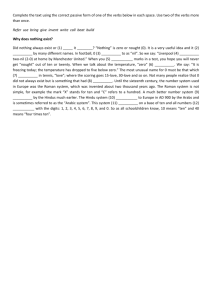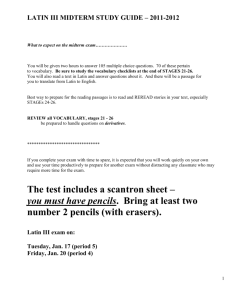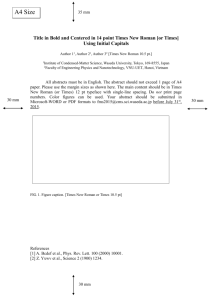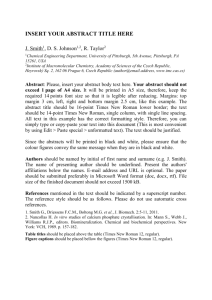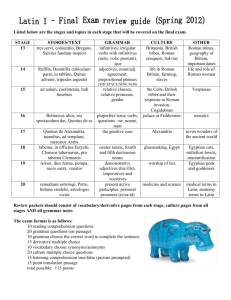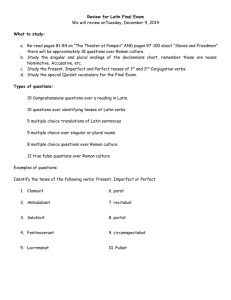Since mastering a classical language presents different challenges
advertisement
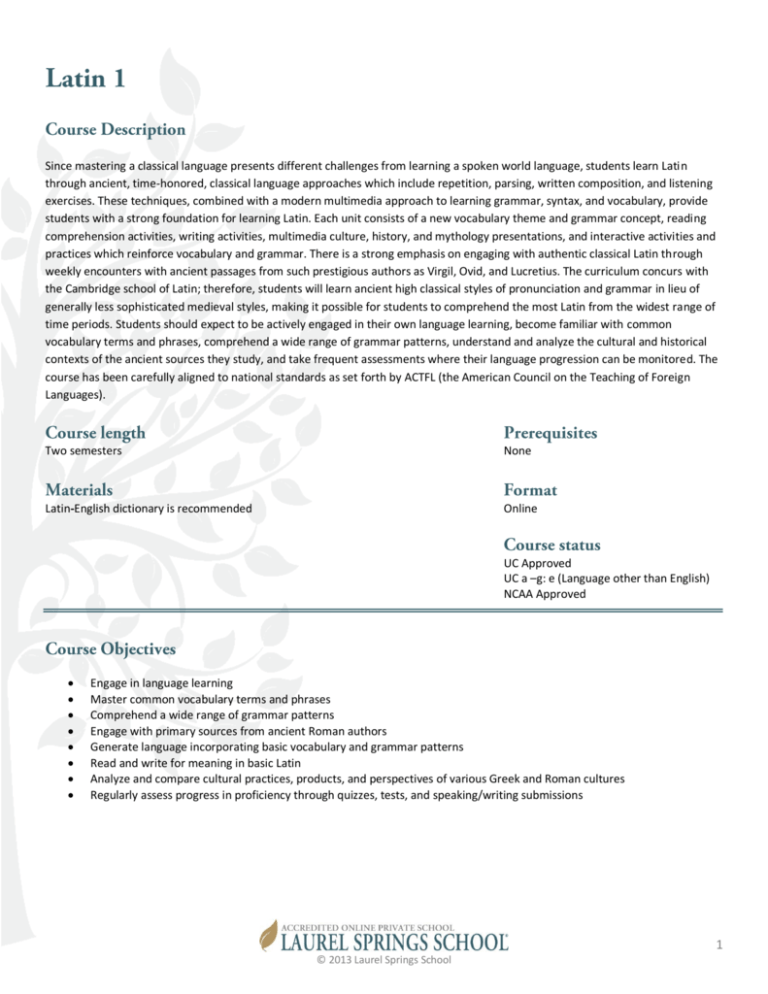
Since mastering a classical language presents different challenges from learning a spoken world language, students learn Latin through ancient, time-honored, classical language approaches which include repetition, parsing, written composition, and listening exercises. These techniques, combined with a modern multimedia approach to learning grammar, syntax, and vocabulary, provide students with a strong foundation for learning Latin. Each unit consists of a new vocabulary theme and grammar concept, reading comprehension activities, writing activities, multimedia culture, history, and mythology presentations, and interactive activities and practices which reinforce vocabulary and grammar. There is a strong emphasis on engaging with authentic classical Latin through weekly encounters with ancient passages from such prestigious authors as Virgil, Ovid, and Lucretius. The curriculum concurs with the Cambridge school of Latin; therefore, students will learn ancient high classical styles of pronunciation and grammar in lieu of generally less sophisticated medieval styles, making it possible for students to comprehend the most Latin from the widest range of time periods. Students should expect to be actively engaged in their own language learning, become familiar with common vocabulary terms and phrases, comprehend a wide range of grammar patterns, understand and analyze the cultural and historical contexts of the ancient sources they study, and take frequent assessments where their language progression can be monitored. The course has been carefully aligned to national standards as set forth by ACTFL (the American Council on the Teaching of Foreign Languages). Two semesters None Latin-English dictionary is recommended Online UC Approved UC a –g: e (Language other than English) NCAA Approved Engage in language learning Master common vocabulary terms and phrases Comprehend a wide range of grammar patterns Engage with primary sources from ancient Roman authors Generate language incorporating basic vocabulary and grammar patterns Read and write for meaning in basic Latin Analyze and compare cultural practices, products, and perspectives of various Greek and Roman cultures Regularly assess progress in proficiency through quizzes, tests, and speaking/writing submissions 1 © 2013 Laurel Springs School Semester 1 Week 9 Final Review and Test Week 1 Greetings Grammatical Terms, English Grammar Review, Introduction to Latin Grammar Introduction to Rome Week 10 School Case, Gender and Declension Introduction to the Early History of Rome Week 11 Adjectives Colors Review of cases Latin Numbers 1-10 Esse Introduction to the Roman Republic Week 12 Third Conjugation Verbs Domus Third Conjugation Verbs The Roman Domus Week 2 Prepositions Review of Present Tense Roman Architecture Week 3 Week 13 Week 4 First Declension Nouns First Declension Nouns Introduction to the Roman Empire First Conjugation Verbs First Conjugation Verbs Word Order Roman Religion Roman food Second Declension Nouns Roman Food Second Conjugation Verbs Second Conjugation Verbs Latin numbers 11-20 Roman Art Irregular Verbs Irregular Verbs The City of Rome Week 17 Week 8 Geography and Verbs Future Tense Latin Numbers 50-100, 500, 1000 Roman Geography: The Growth of the Empire Week 16 Week 7 Animals and Adjectives Noun Adjective Pairs Roman Farms and the Country Week 15 Week 6 Gladiator and Roman Games The Imperfect Tense Roman Games Week 14 Week 5 Months, Days and Seasons Review of 1-3rd Declension Noun Endings Roman Holidays Roman Family Third Declensions Nouns Form Review Roman Family Unit 9 Midterm Review and Test Semester Overview Grammar Review 1-3 Declensions, 1-3 Verb Conjugations Present, Imperfect and Future Review of Roman Culture Week 18 Final Review and Test 2 © 2013 Laurel Springs School Semester 2 Week 29 Week 19 Irregular Adverbs and Conjunctions Adverbs The Founding of Rome: Romulus and Remus Week 30 Week 20 3rd Principal Parts Perfect Tense 1-3 Conjugations, Principle Parts Early Rome: The Kings Week 21 Seneca Ep. 5 ln. 20-30 Esse: Imperfect, Future, Perfect and Pluperfect The Late Republic: Octavian Adjectives Republican Positions Comparative Adjectives Review of Numbers Early Republic: The Twelve Tables Catullus 13 Demonstrative Pronouns: hic, haec, hoc The Roman Empire: Augustus Week 31 Horace Ode 1.11 Demonstrative Pronoun: ille Roman Literature: Horace Week 32 Vergil Aeneid I.1 3rd –io Verbs and 4th Conjugation Verbs Roman Literature: Vergil Week 22 Week 33 Vocabulary (Nouns) Personal Pronouns: ego, tu, nos and vos Roman Republic: The Punic Wars I Ovid Metamorphoses III.344-352 Future Perfect Tense Roman Literature: Ovid Week 23 Week 34 Verbs pertaining to governing Personal Pronouns: is, ea, id Roman Republic: The Punic Wars II Plautus Aulularia 1-12 Superlative Adjectives Roman Literature: Terrence and Plautus Week 24 Week 35 Occupations and Verbs Possessive and Reflexive Pronouns Roman Republic: The Grachii Brothers Livy Ab Urbe Condita I.8 Week 36 Week 25 Final Review and Test Cicero In Catalinam I.1 Relative Pronouns (Singular) Review of Numbers The Late Republic: Cicero Week 26 Caesar In Bello Gallico I.1 Indirect Object Pronouns The Late Republic: Julius Caesar Unit 27 Midterm Review and Test Week 28 Lucretius De Rerum Naturam I.1 Pluperfect Tense The Late Republic: The Gallic Wars 3 © 2013 Laurel Springs School
